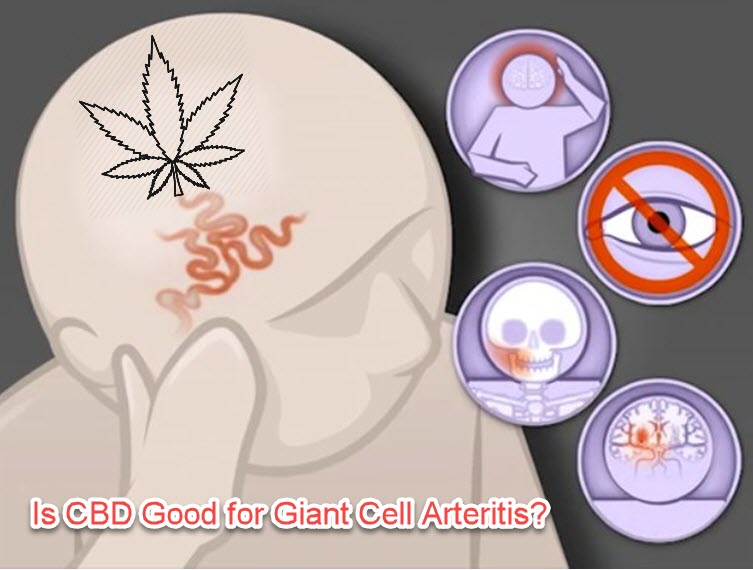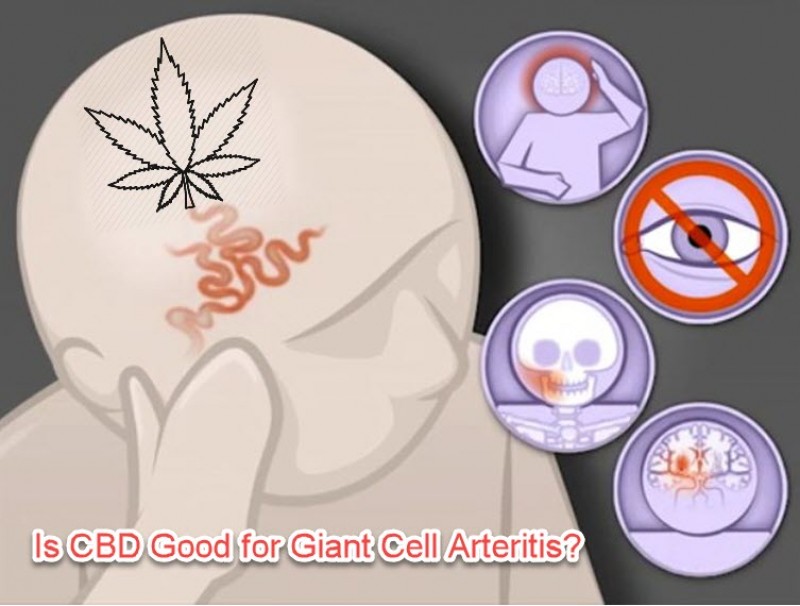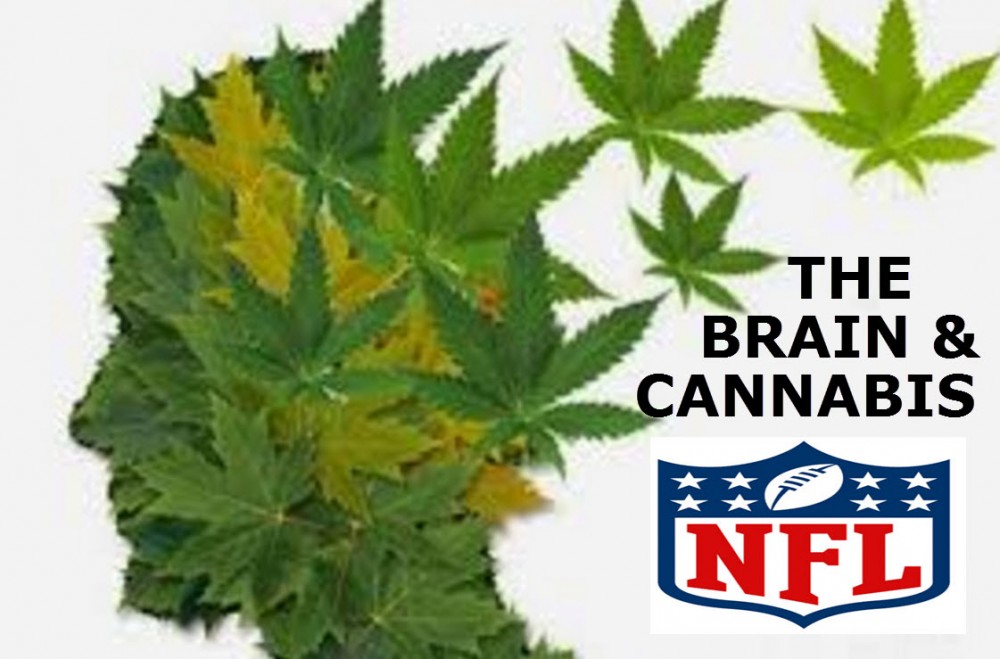Is CBD Good for Giant Cell Arteritis?

Giant Cell Arteritis is one of the most common forms of vasculitis in older people. It often starts only after the age of 50. A person suffering from this condition often has headaches, joint pains, facial pains, fever, difficulty in seeing, and sometimes loss of vision. As with many other diseases, symptoms are shared with other conditions that make it hard to identify straight away. It is also commonly known as temporal arteritis because the arteries on the side of the head, just in front of the ears, get inflamed. The reason why it is called Giant Cell Arteritis is that giant cells are often seen under a microscope when a biopsy is done.
What is Temporal Arteritis or Giant Cell Arteritis?
Temporal arteritis is an inflammatory disease that affects the large blood vessels of the neck, scalp, and arms. The inflammation is because of a blockage of the blood vessels that disturbs the blood flow. The average onset of the disease is at the age of 72, but it often develops already at the age of 50.
With giant cell arteritis, the lining of the arteries became inflamed. As a result of the inflammation, it swells up. This swelling narrows the blood vessels that reduces blood flow. Oxygen and vital nutrients are then limited to reach body tissue. Almost any large blood vessel or artery can be affected, but it mostly occurs in the arteries in the temple.
The cause of giant cell arteritis is not known, but the thought is that there are abnormal attacks on artery walls by the immune system. Excessive doses of antibiotics and infections are linked to the condition.
Classic Symptoms of Giant Cell Arteritis?
The most common symptoms of this disease are headaches, pain in the hips and shoulders, pain in the jaw after chewing, fever, and blurred vision. Polymyalgia rheumatica is often linked to giant cell arteritis. The headaches can progressively worsen, come and go, or temporarily subside. General symptoms are:
Persistent headaches, usually around the temples.
Scalp tenderness
Jaw pain when you chew or open your mouth wide
Fever
Fatigue
Unintended weight loss
Vision loss or double vision, particularly in those experiencing jaw pain
Sudden, permanent loss of vision in one eye
Sore throat or cough
Discomfort on the tongue
How is it Diagnosed?
To diagnose if the patient has the disease, a biopsy of the temporal artery is made. The doctor uses numbing medication to remove a small part of the temporal artery to see if there is any evidence of inflammation. It is a very safe procedure that hardly leaves a scar and causes little pain. Blood tests can also be included to see if the patient has high levels of erythrocyte sedimentation rates. A sed rate is to test how fast a patient´s red blood cells settle when placed in a small tube. In inflammatory conditions, red blood cells settle faster than in non-inflammatory states. Patients with GCA also often have slight-anemia or low red blood cell counts.
Risk Factors and Complications
There are several factors that could increase the risk of contracting temporal arteritis. Age and sex play a role. Women are twice likely to develop the disease. Giant cell arteritis is also more common under white people and family history could also increase the risk.
If giant cell arteritis is not early detected, serious complications could develop. Some of these complications are:
Blindness – diminished blood flow can cause painless vision loss suddenly in one, or rarely, both eyes
Aortic aneurism – an aneurism is a bulge that forms in weakened arteries. If it bursts, it could cause life-threatening internal bleeding.
Stroke – this is an uncommon complication
How Can CBD Help?
The most frequently used medication to treat giant cell arteritis is generally high oral doses of corticosteroids like prednisone to reduce inflammation. But steroids have a nasty side-effect as it weakens your bones. Cannabidiol or CBD is a reliable safer alternative to use to treat the condition. Steroids are proven to reduce inflammation, but the side-effect especially weaken bone density in older people, makes people looking for other alternatives.
CBD has not or little side-effects and can be used by people of all ages and even animals. CBD has properties known to fight inflammation. It interacts with the endocannabinoids in our body to relieve inflammation associated with immune system response. Apart from reducing inflammation, it also strengthens the immune system.
CBD oil can also topically be applied to the temples or any other part where pain occurs. Because CBD is also an analgesic, it is a safe alternative to opioids used to combat pain. CBD also induces sleep and relaxes the muscles to aid in better sleep.
Afterthoughts
CBD is a safe alternative to relieve pain, inflammation, and other symptoms of giant cell arteritis. It is organic and contributes to strengthening your immune system too. Start with low doses first, and gradually increase it until you reach the desired effect.
CANNABIS FOR THE HEAD, READ MORE...
CANNABIS FOR HEAD AND BRAIN INJURIES, READ MORE.








